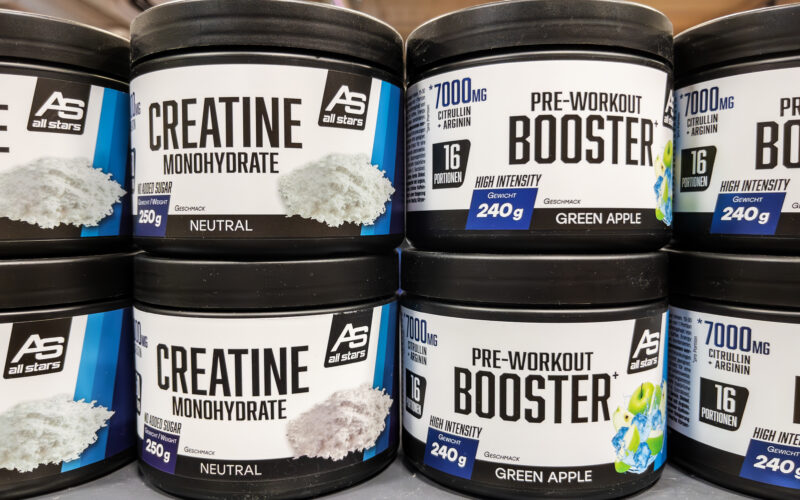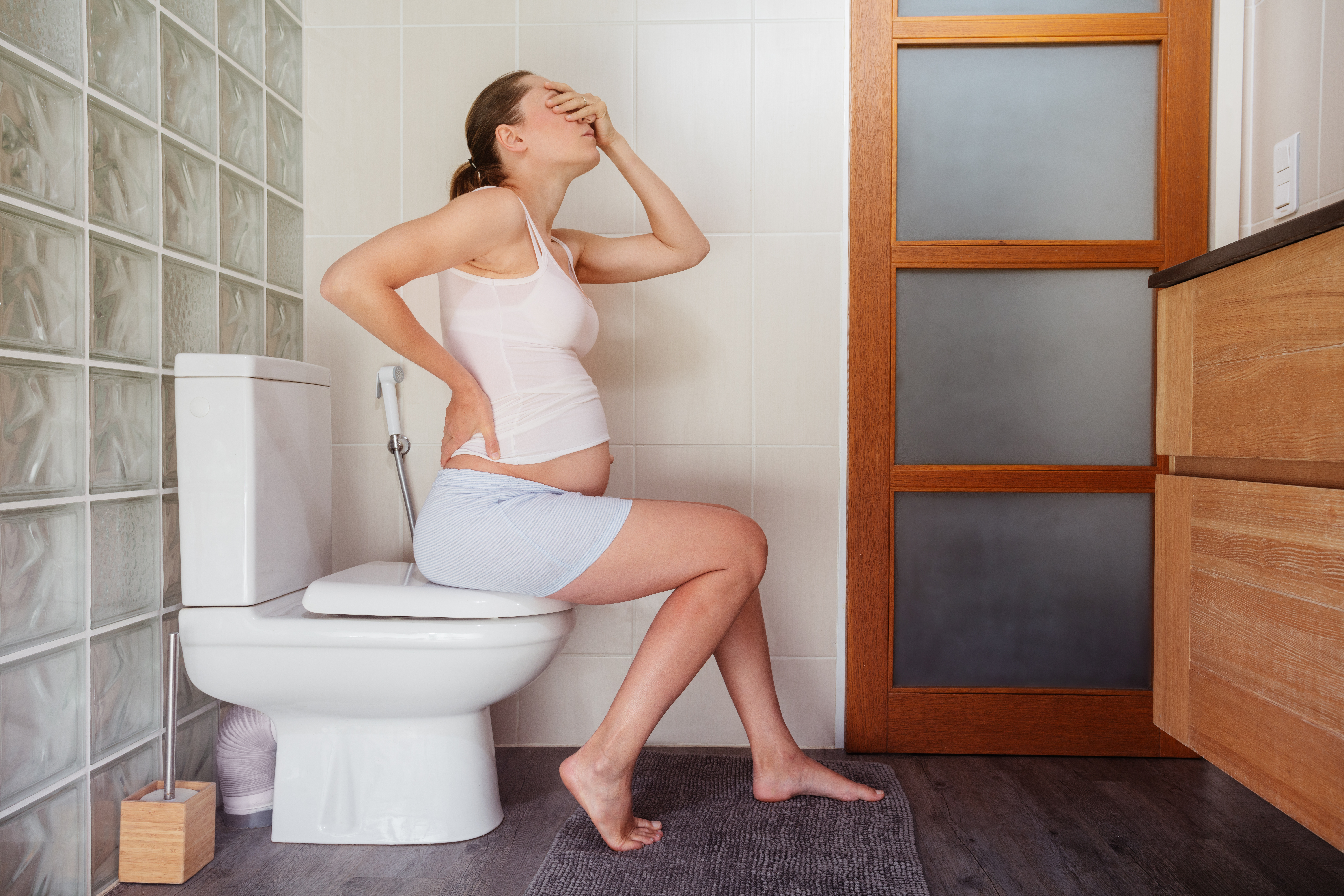In the past, creatine was stereotypically associated with “gym-bros” looking for explosive muscle growth and improved performance. No longer. Thanks to popular researchers like Dr. Andrew Huberman, a neuroscientist and tenured professor of neurobiology at the Stanford School of Medicine who also hosts a biohacking podcast with a cult-like following, creatine supplementation has become increasingly popular for a variety of everyday folks.
Apparently, creatine does more than just help with “the gains” in strength training. Evidence suggests it may also decrease depression symptoms, lessen the effects of sleep deprivation, and it may have specific benefits for pregnant moms and babies in utero. Beyond the childbearing years, creatine may even help post-menopausal women maintain muscle strength and slow age-related bone density loss.
What is creatine?
Creatine is a compound found in animal-based foods, specifically meat, fish, and dairy. It is also created by the body, mainly in the liver, kidneys, and pancreas. Cells throughout the body, particularly muscle cells and brain cells, utilize this compound.
What does creatine do for us?
Creatine is the fuel that provides cells with immediately available energy. This is why it has been so widely associated with strength-training athletes, where the movements of weightlifting involve short intense bursts and muscle cells’ energy needs rise quickly. The creatine circuit (the process by which this compound is created and broken down by the body) is one of the primary pathways of providing energy to our body’s cells. The circuit ensures that the cells have enough energy to complete the task that the body is trying to accomplish—whether that’s lifting a weight or solving a complex math problem.
When cells, whether in the muscles or in the brain, perform actions like these, they release free radicals that cause cell and tissue damage if not “cleaned up” by the body. Creatine reduces the effects of this damage by providing cells with energy to clear out those free radicals [1].
Creatine as a ‘backup energy battery’
Researcher Dr. Stacey Ellery at the Hudson Institute of Medical Research summed up creatine’s impact on the brain this way: “Creatine is the fuel for the ‘backup energy battery’ of many vital cells in the brain, so we have been studying its use in cases of energy failure in the [brain]… and whether this simple supplement can prevent injury. The theory is that by providing more charge for this battery through dietary supplements, cells have a greater capacity to maintain energy turnover…. This ultimately reduces the build-up of nasty by-products, including reactive oxygen species and inflammatory molecules, reducing cell death and maintaining brain health.”
How the body handles excess creatine
There have been extensive animal studies on the safety of creatine supplementation as well as over 20 years’ worth of human trials. It is very well tolerated, likely because it is created by the body and found in the average diet that includes animal products. Excess creatine is filtered out by the kidneys in healthy individuals. Those with kidney disease or other kidney injury should consult a medical professional as supplementation may be inappropriate.
Do you need a supplement, or can you get enough from food?
Adults who consume animal products, specifically meat, fish, and dairy, achieve about half of their daily requirement for creatine, while the remainder is synthesized in the kidneys, liver, and pancreas (it’s also found in semen!). For those who avoid animal products, specifically meat, one study showed the creatine content of men’s skeletal muscle was approximately 30% lower than their carnivore-consuming counterparts [2].
Another study compared 4,522 females aged 12 years and older to determine the relationship between diet-only creatine intake and reproductive health. The group that consumed 13 mg of creatine per kg of bodyweight or less had a significantly higher likelihood of irregular menstrual cycles, pelvic infections, hysterectomy, oophorectomy (surgical removal of one or more ovaries), and/or need for hormone replacement therapy. Women whose diets contained over 13 mg creatine per kg bodyweight had a noticeably lower risk of the same reproductive conditions [4].
While it is possible to consume enough creatine through food sources, especially if not on a vegan or vegetarian diet, a creatine supplement may still be beneficial—specifically for women. In part 2 of this 2-part series, we’ll explore which women (hint: those who are pregnant, postpartum, and postmenopausal) may benefit most from creatine supplementation.
References:
[1] Ellery, Stacey J., et al. “Creatine for Women: A Review of the Relationship between Creatine and the Reproductive Cycle and Female-Specific Benefits of Creatine Therapy – Amino Acids.” SpringerLink, Springer Vienna, 22 Feb. 2016, link.springer.com/article/10.1007/s00726-016-2199-y [2] Watt KK, Garnham AP, Snow RJ. Skeletal muscle total creatine content and creatine transporter gene expression in vegetarians prior to and following creatine supplementation. Int J Sport Nutr Exerc Metab. 2004 Oct;14(5):517-31. doi: 10.1123/ijsnem.14.5.517. PMID: 15673098.[3] Ostojic, Sergej M, et al. “Association between Dietary Intake of Creatine and Female Reproductive Health: Evidence from NHANES 2017-2020.” Food Science & Nutrition, U.S. National Library of Medicine, 30 Apr. 2024, pubmed.ncbi.nlm.nih.gov/39055234/.











